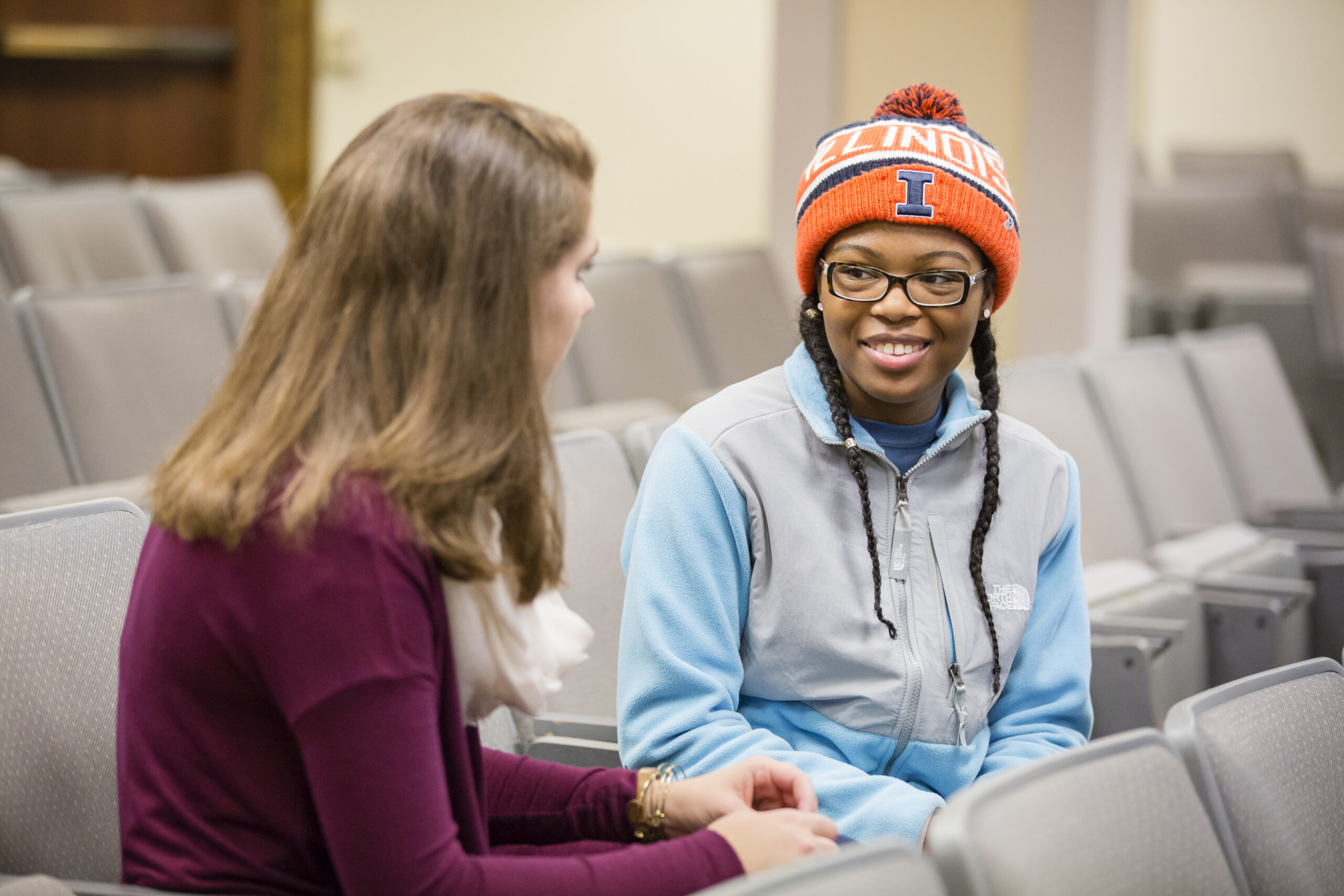
We provide the educational resources to build bridges between military-connected populations and academic researchers interested in helping their communities.
Whether by convening academic audiences or delivering programming beyond the university’s traditional borders, Chez is committed to developing programs that orient research, resources, and influence towards new possibilities for public health. The Office of Research and Educational Programming provides educational programming to three audiences: field practitioners, course instructors, and Urbana researchers. These resources can be accessed through https://equip.illinois.edu (external audiences) or through Microsoft Teams (internal audiences, please contact mlots2@illinois.edu for access).
Field Practitioners
Our research creates real-world impact through collaborative research with campus and community partners, continuing a legacy of programmatic innovation for higher-education student veterans. In the curation of research activity, we place a special focus on research studies that have practical outcomes for student veterans in higher education. In this way, the Center is a place to explore innovative transitional methods, develop new technologies, test important questions, and discover treatments from various disciplines. We share our innovations in working with student veterans through professional development opportunities nationally with military student service providers.
Course Instructors
The Office of Research and Educational Programming supports the Military-Connected Ally Support Training (MCAST) program. This student-developed professional development series engages course instructors and the broader campus community in a dialogue to identify the strengths and challenges service members, veterans, and military family members face while pursuing their academic and career goals. Modules within this asynchronous program include slide presentations, interactive programming, student panels, and audience participation to engage all learning styles fully. MCAST allows participants to continue learning about specific issues students face, including diversity, health, and family.
Illinois-Urbana Researchers
We provide workshops that are designed to help researchers develop necessary cultural competencies for effectively engaging with this community in research. Workshops can be adapted for various audiences: students/class talks, academic professionals (i.e. Research Development Managers), research labs, or specific colleges/units/centers. Some examples of previous workshops include:
- Cultural competency for engaging military-connected populations in research.
- Crafting military benefit statements for the Congressionally Directed Medical Research Program.
